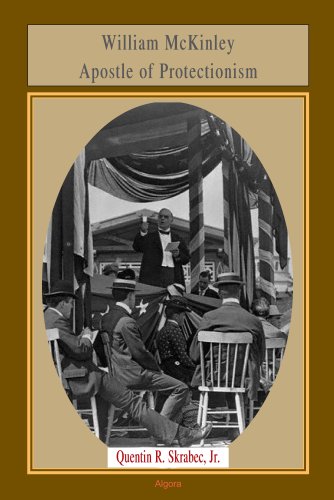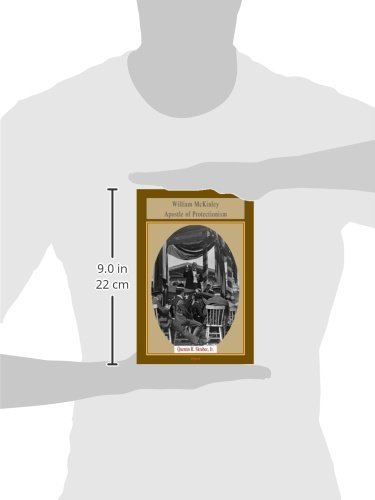William McKinley, Apostle of Protectionism by Quentin R. Skrabec Jr. offers a compelling biography of the 25th President of the United States, focusing on his unique approach to protectionism, the labor-business alliance, and American exceptionalism. The book draws striking parallels between McKinley’s era and modern-day America, especially as the U.S. grapples with challenges related to globalization, free trade, protectionism, and immigration. Through this historical lens, McKinley’s policies and strategies provide valuable insights into how America can navigate the complex world of international trade while protecting domestic interests. McKinley’s Unconventional Approach to Protectionism: McKinley is often overshadowed by his successor, Theodore Roosevelt, but his contributions to the U.S. economy and political landscape were immense. As Chairman of the Ways and Means Committee, McKinley crafted a tariff bill in 1888 that united a nation still divided by regional differences. His approach to protectionism was nuanced–supporting free trade but with managed markets and protections for American labor. He envisioned a system where tariffs safeguarded domestic industries without undermining the benefits of global trade. A Labor-Business Alliance: One of McKinley’s most significant accomplishments was forging an alliance between big business and American labor. His policies created a unique coalition where industrial workers and business leaders alike saw their interests aligned. McKinley’s rhetoric was revolutionary for its time, as he appealed to steelworkers in Pittsburgh and bankers in New York with equal fervor. Economic Manifest Destiny: McKinley’s protectionist views were steeped in what Skrabec refers to as “economic manifest destiny.” He believed that the United States had a unique role to play in the global economy, one that required a careful balance of protecting domestic industries while engaging in international trade. His policies laid the groundwork for American exceptionalism in economic terms, as the U.S. became a global industrial leader. McKinley’s belief that foreign trade should benefit U.S. workers and industries is particularly relevant today as the country continues to navigate the challenges of globalization and trade agreements. The Legacy of McKinley’s Presidency: McKinley’s legacy extends beyond his policies. He was one of the most popular presidents in American history, and his untimely assassination in 1901 shocked the nation. His funeral train traveled across the country, with factory workers and business leaders alike mourning his death. The alliance between labor and management that he built was one of the most enduring aspects of his presidency–something that has not been replicated in modern U.S. politics. McKinley’s Relevance in Today’s Globalized World: In today’s global economy, where debates about free trade, tariffs, and worker protections dominate political discourse, McKinley’s policies provide a historical blueprint for addressing these issues. His belief in protecting domestic labor while fostering international trade relations is as relevant today as it was over a century ago. McKinley’s role as a “dinner pail Republican”–someone who stood for the interests of both laborers and capitalists–offers a model for how the U.S. can navigate the complexities of globalization with the best interests of American workers in mind. Conclusion: William McKinley, Apostle of Protectionism is not just a biography of a forgotten president; it is a timely examination of how America can balance free trade and protectionism in a globalized world. Skrabec’s analysis of McKinley’s policies, particularly his labor-business alliance and protectionist strategies, offers valuable insights for modern readers and policymakers. As the U.S. continues to define its role in the global economy, McKinley’s legacy provides a framework for protecting domestic interests while engaging with the world.
William McKinley, Apostle Of Protectionism
$23.95
This historical biography provides educational insights into U.S. presidential history and economic policies.
Additional information
| Weight | 0.454 lbs |
|---|---|
| Dimensions | 15.2 × 1.6 × 22.9 in |







Reviews
There are no reviews yet.